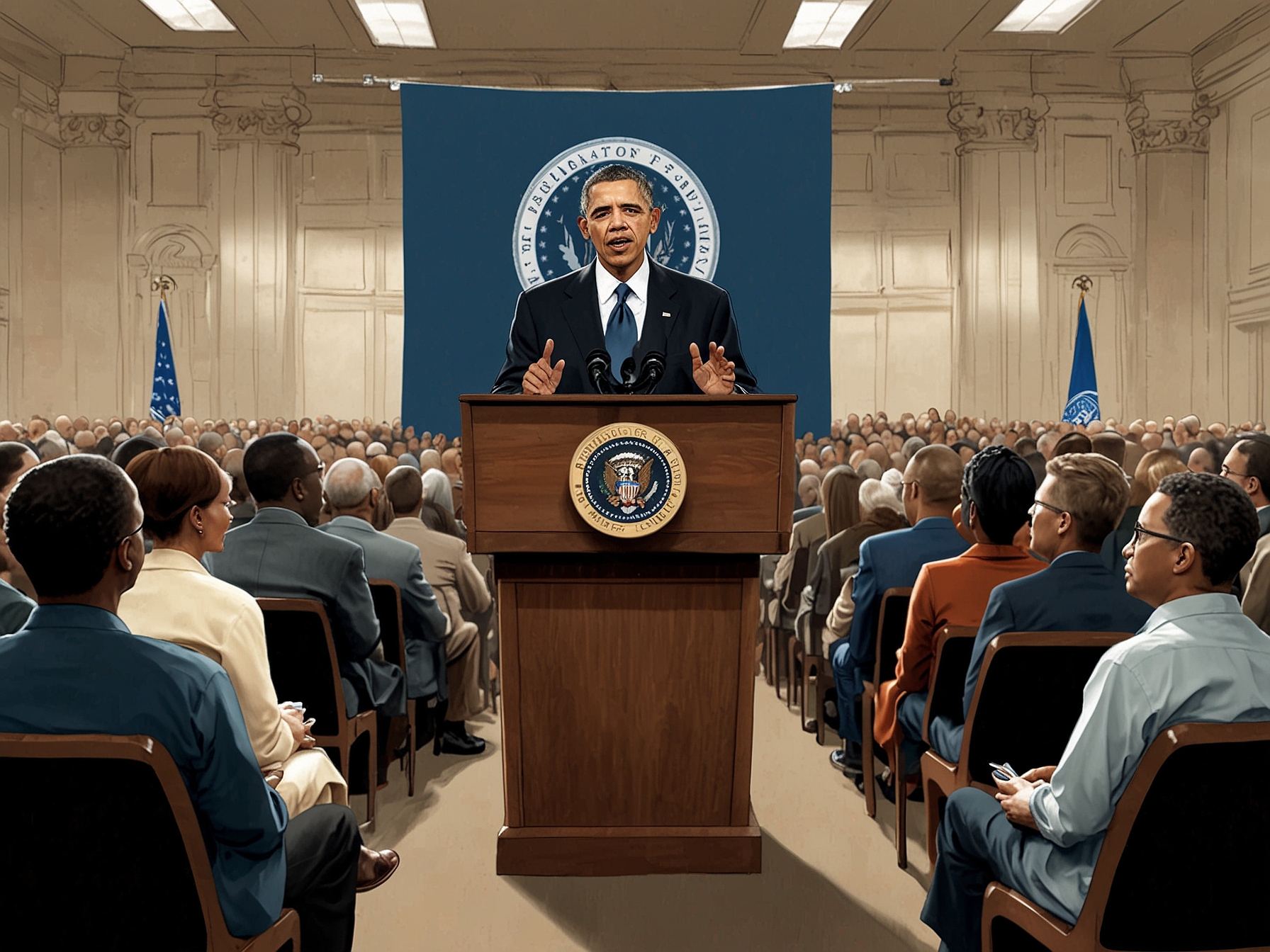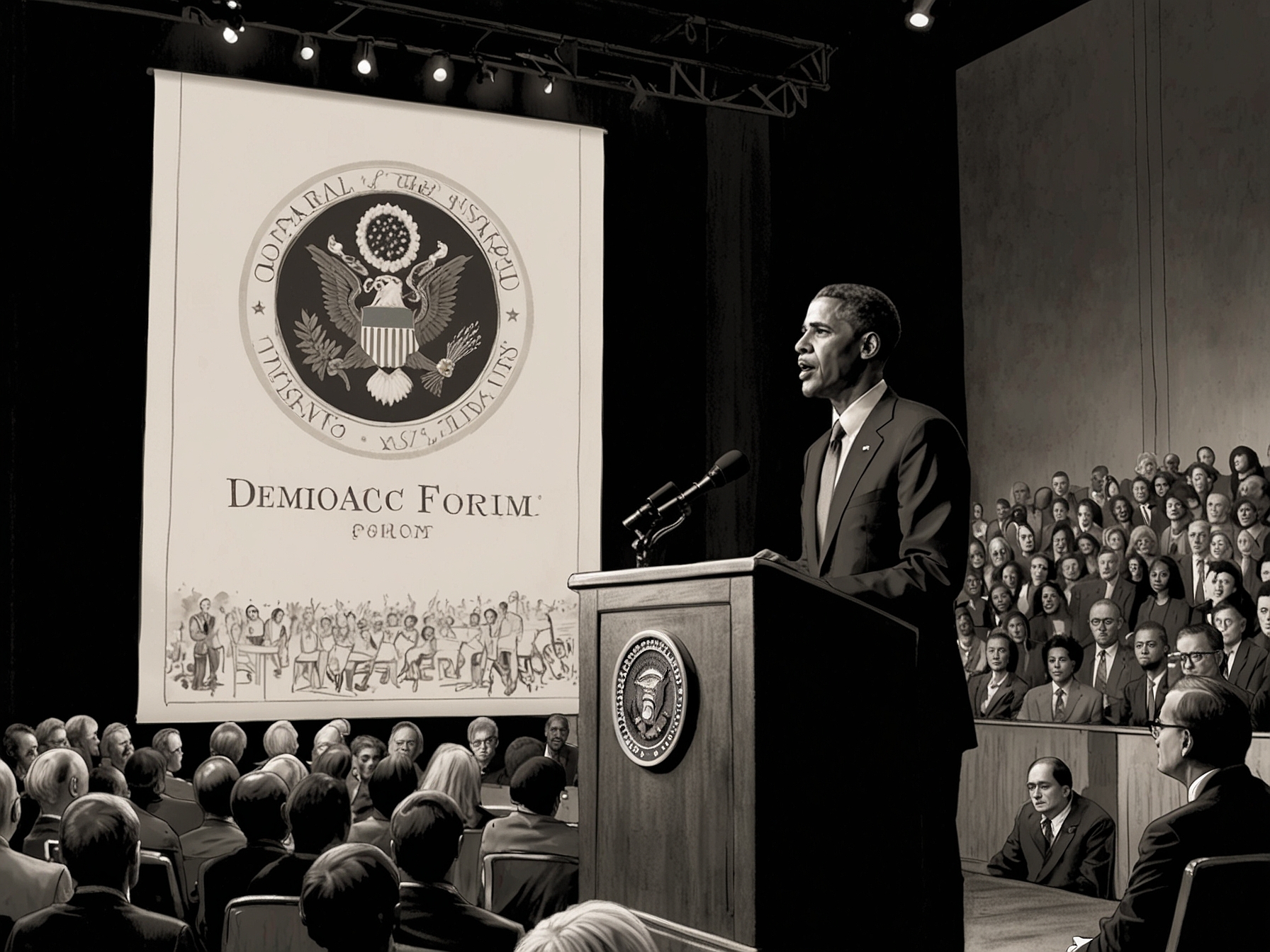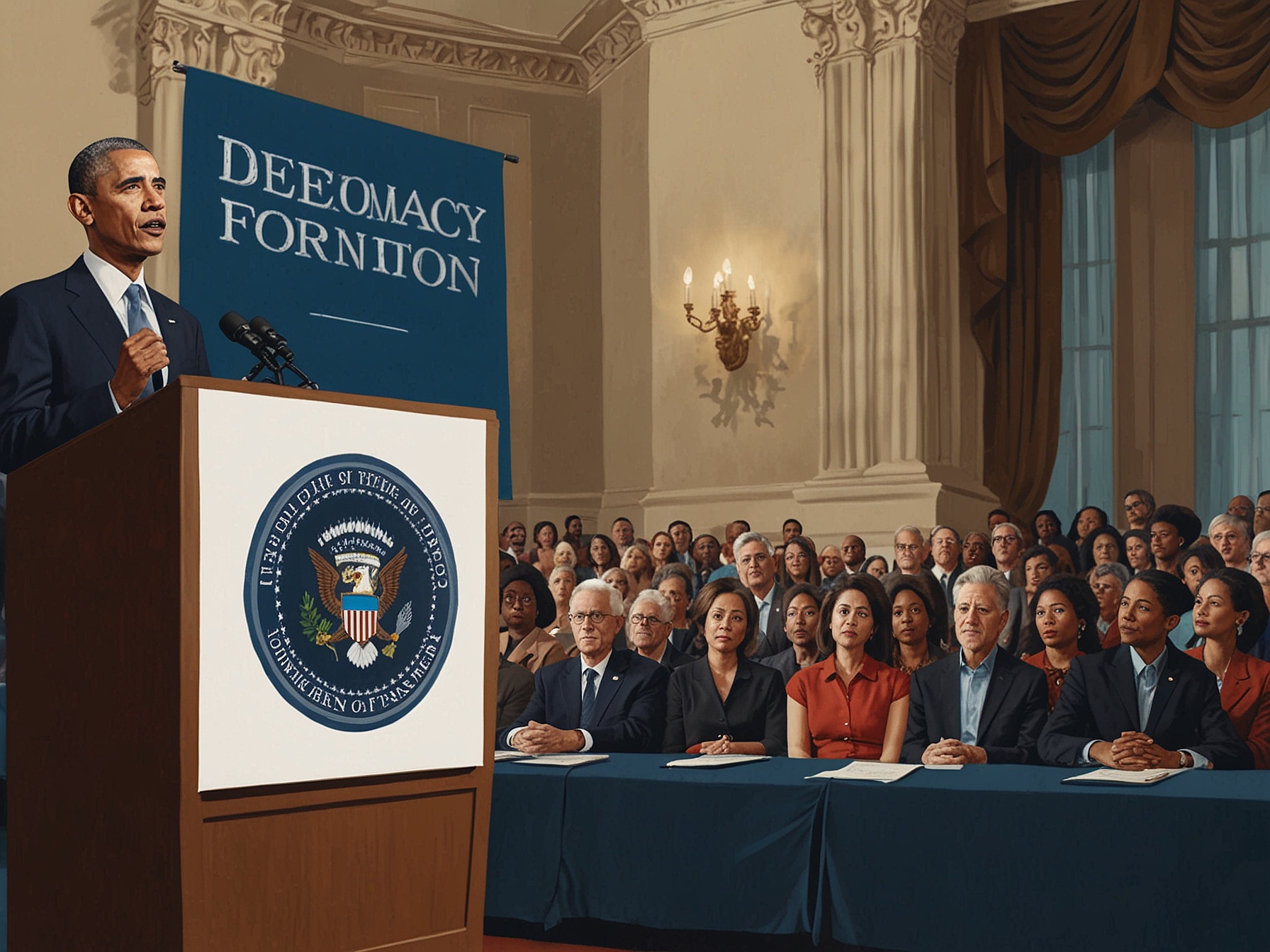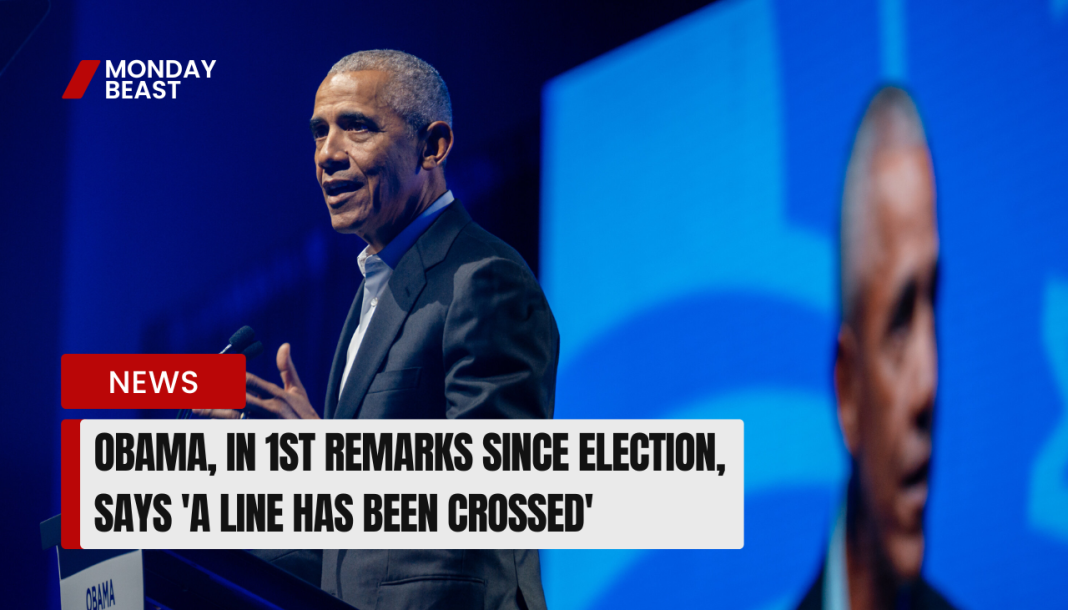In his first public remarks since the recent election, former President Barack Obama delivered a powerful message at the Obama Foundation’s Democracy Forum. He warned that democracy faces a perilous threat if “one side” seeks to solidify power through methods like vote suppression and politicizing the judiciary. For many, his words echoed like a wake-up call in a nation where political divisions have only deepened.

Obama’s concerns resonate, especially among those fearing that political retaliations are becoming the norm. Many Americans are left wondering: Are we at the brink of sacrificing democratic principles for power? He emphasized that a line has been crossed when the state is weaponized against dissenters.
The backdrop of Obama’s speech includes the tumultuous political landscape shaped by President Trump. The former president highlighted that while Trump’s indictments have raised claims of politically motivated attacks, such situations might pave the way for more significant autocratic tendencies. This dynamic presents a genuine dilemma: Could normalizing these legal battles signify a larger trend away from democratic norms?

During the address, Obama pointedly distinguished between the short-term frustrations and the long-term health of democracy. “It’s easy to give democracy lip service when it delivers the outcomes we want,” he said. This statement compels us to reflect on how our allegiance to democratic principles is tested when electoral outcomes don’t align with our preferences. Are we prepared to uphold democracy even when it doesn’t yield the results we seek?
The former president called for pluralism, promoting the idea that a functional democracy requires coexistence among diverse groups. He argued that dialogue across differences is crucial. “It means that in a democracy we all have to find a way to live alongside individuals and groups who are different from us,” he articulated. This approach raises an essential question: Can we truly embrace differing opinions in a time when political discourse often borders on hostility?

In criticizing incivility, Obama pointed to examples of harsh rhetoric surrounding Trump. He reflected on President Biden’s earlier remarks—deemed derogatory by some—which revealed the thin line between tough political discourse and outright disrespect. As we grapple with terminology that divides rather than unites, how do we redefine respect in our discussions?
Echoing his earlier sentiments, Obama cautioned against the increasing willingness among politicians to breach democratic norms. He described how the climate of disorder and distrust could result in violence to attain control. This picture is disconcerting, and one wonders: What steps can citizens take to restore faith in democratic institutions?
He recalls his tenure and the challenging moments that tested democratic resilience, highlighting the rampant division. As Trump faced two impeachments, it became clear that our political strife is not new. Yet, the implications today could reshape our approach entirely.
Obama believes that to safeguard democracy, we must engage with one another through understanding and compromise. His call for coalition-building implies that our differences could be our strength. In essence, can we learn to collaborate despite our varied beliefs?
As part of his message, he urged individuals to recognize the stakes involved in these choices. Is it possible for ordinary citizens to rise above partisan tensions and seek common ground?
Ultimately, Obama’s speech serves as a reminder of the work that lies ahead. It reminds us that democracy requires active participation and unwavering dedication. With a moral obligation to uphold democratic values, the question remains: Are we ready to fight for a government that represents us all?




